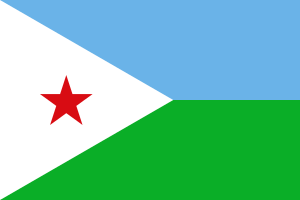Djiboutian cuisine
 |
| Part of a series on the |
| Culture of Djibouti |
|---|
| Culture |
| People |
| Religion |
| Language |
| Politics |
|
Djiboutian cuisine is a mixture of Somali, Afar, Yemeni, and French cuisine, with some additional South Asian (especially Indian) culinary influences. Local dishes are commonly prepared using a lot of Middle Eastern spices, ranging from saffron to cinnamon. Grilled Yemeni fish, opened in half and often cooked in tandoori style ovens, are a local delicacy. Spicy dishes come in many variations, from the traditional Fah-fah or "Soupe Djiboutienne" (spicy boiled beef soup), to the yetakelt wet (spicy mixed vegetable stew). Xalwo (pronounced "halwo") or halva is a popular confection eaten during festive occasions, such as Eid celebrations or wedding receptions. Halva is made from sugar, corn starch, cardamom powder, nutmeg powder and ghee. Peanuts are sometimes added to enhance texture and flavor.[1] After meals, homes are traditionally perfumed using incense (cuunsi) or frankincense (lubaan), which is prepared inside an incense burner referred to as a dabqaad.
References
- ↑ Barlin Ali, Somali Cuisine, (AuthorHouse: 2007), p.79